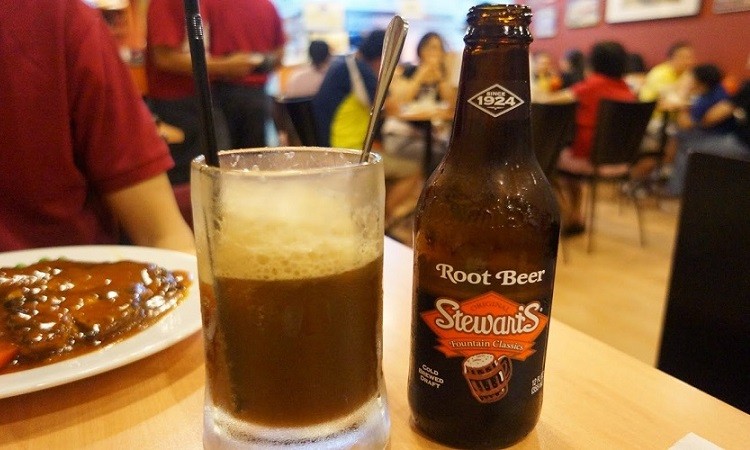
In certain countries, including parts of Europe and Asia, there exists a cultural perception that distinguishes beer from other alcoholic beverages. This unique perspective often stems from a combination of historical, social, and economic factors that have shaped the way beer is perceived within these societies.
Historical Context
Beer has a long and rich history that predates recorded civilization. Archaeological evidence suggests that beer was being brewed as far back as 7000 BCE in ancient Mesopotamia. Throughout the ages, beer has played a central role in many societies, serving as a staple beverage for both nourishment and socialization. The ancient Egyptians, for example, revered beer as a divine gift from the gods and incorporated it into religious ceremonies and daily life.
Social Acceptance
One of the key reasons why beer is not always viewed as alcohol in certain countries is due to its widespread social acceptance. Unlike stronger spirits such as vodka or whiskey, beer is often seen as a more casual and accessible beverage that can be enjoyed in a variety of social settings. In many cultures, beer is deeply ingrained in social norms and rituals, from sharing a pint with friends at the local pub to celebrating festivals and holidays with rounds of beer.
Community Gatherings
Beer has a unique ability to bring people together and foster a sense of community. In many countries, the pub serves as a communal space where friends and neighbors gather to unwind, socialize, and bond over a few drinks. The convivial atmosphere of the pub, coupled with the moderate alcohol content of beer, contributes to its perception as a harmless and enjoyable beverage.
Legal Classification
Another factor that influences how beer is perceived is its legal classification within certain countries. In some regions, alcoholic beverages are categorized based on their alcohol by volume (ABV), with beer typically falling into a lower tier compared to spirits and fortified wines. This legal distinction can shape public perceptions of beer as a less potent or harmful form of alcohol.
Alcohol Content
One of the distinguishing characteristics of beer is its relatively low alcohol content compared to other alcoholic beverages. While the alcohol by volume (ABV) of beer can vary depending on the style and brewing process, it is generally lower than that of spirits such as vodka or rum. This lower alcohol content may contribute to the perception that beer is less intoxicating and therefore less harmful than stronger alcoholic beverages.
Marketing and Advertising
Beer companies often employ marketing strategies that emphasize the sociability and enjoyment associated with beer consumption. Advertisements frequently depict scenes of camaraderie, relaxation, and celebration, targeting a wide demographic that includes young adults and beer enthusiasts. This marketing approach can reinforce the perception of beer as a casual and lighthearted beverage rather than a serious or harmful form of alcohol.
Cultural Associations
Cultural traditions and customs surrounding beer consumption also play a significant role in shaping its perception within society. In many countries, beer is deeply intertwined with national identity, culinary traditions, and social rituals. For example, Oktoberfest in Germany and St. Patrick's Day in Ireland are cultural celebrations that center around beer, reinforcing its status as a beloved and culturally significant beverage.
Economic Factors
The beer industry wields considerable economic influence in many countries, contributing to job creation, tax revenue, and tourism. As a result, policymakers and regulators may be more inclined to support and promote the beer industry, which can influence public attitudes and perceptions towards beer. Additionally, the economic importance of beer production and consumption may lead to policies and regulations that differentiate beer from other forms of alcohol.
Educational Initiatives
Efforts to educate the public about responsible drinking habits and the risks of alcohol consumption often focus on spirits and hard liquor rather than beer. This selective emphasis can reinforce the perception that beer is a relatively benign form of alcohol compared to stronger beverages. However, it is important to note that excessive beer consumption can still have negative health and social consequences, and responsible drinking practices should be encouraged regardless of the type of alcohol consumed.
Changing Perceptions
As cultures become more interconnected and globalized, traditional attitudes towards beer may undergo gradual shifts to align with prevailing global norms regarding alcohol consumption. This could involve greater awareness of the health risks associated with excessive beer consumption, as well as efforts to promote moderation and responsible drinking habits. However, cultural attitudes towards beer are deeply ingrained and may evolve slowly over time. In conclusion, the perception of beer as distinct from other forms of alcohol in certain countries is shaped by a complex interplay of historical, social, economic, and cultural factors. While beer is unquestionably an alcoholic beverage, its unique characteristics and cultural significance often set it apart in the minds of consumers. Understanding these factors is essential for promoting responsible drinking habits and addressing alcohol-related issues within society.
This mistake related to food can make you sick!
Caution! Eating this food item immediately after eating eggs can cause harm to the body
Eat these things in case of diarrhea, you will get relief soon